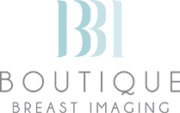Eat Well, Live Well: Nutrition for Breast Health
Boutique Breast Imaging, provides better care through providing superior patient care. Our breast radiologists have acquired the best equipment, technology and staff to provide the highest imaging quality with expedited results. In addition, we want to educate women and help them understand how they can take control of their breast health and help reduce their chances of getting breast cancer. By scheduling routine mammograms at Boutique Breast Imaging, women are taking the first step to early detection. But another important component to helping women prevent breast cancer can be attributed to the foods we eat. “Good nutrition reduces the development of breast cancer and breast cancer recurrence,” shared Dr. Kathryn Pearson, Founder and Director of Boutique Breast Imaging. Here are some important nutritional tips Dr. Pearson wants women to know:
Nutrition to Prevent Breast Cancer:
It is estimated that one third of cancer deaths may be attributed to diet in adulthood. Conversely, good nutrition reduces the development of breast cancer. For breast cancer to “take hold” and grow, it depends on three mechanisms: (1) a cellular mutation creating a cancer cell; (2) an immune system that can’t fight it; and (3), the “feeding” of the breast cancer cell either through hormones or growth factors. Extensive research has shown that breast cancer may be prevented or thwarted by targeting these mechanisms through nutrition (and other lifestyle factors).
“Let food be your medicine and medicine be your food.” – Hippocrates
1. Improve Immune Function
a. Antioxidants – prevent oxidative damage in body cells
i. Primarily plant-based diet: 15-25% reduction in breast cancer risk: Fruits (particularly berries, citrus, rosaceae fruits (apples, pears, apricots, nectarines, plums, peaches, cherries), vegetables (particularly carrots -decrease cancer cell production – and cruciferous vegetables – broccoli, cauliflower, brussel sprouts, turnips, cabbage), beans / legumes, nuts / seeds (flax seeds, pomegranate) and whole grains; green tea and spices (turmeric / curcumin)
ii. Dietary antioxidants plus Multivitamin better than supplemental antioxidants (which may not be used in breast cancer patients during chemo / radiation),
b. Vitamin D (want levels > 50 ng/ml; each 1000 IU Vitamin D/day raises level approximately 10 ng/ml): 30% reduction in risk of breast cancer; recommended vitamin D dose (D3>D2 for absorption) should be between 1,000-4,000 IU per day (and sometimes even higher).
i. Turns on cellular apoptosis (kills bad cells), regulates cell growth / differentiation
ii. Reduces mammary tumors in mice
iii. Reduces estrogen effects in the breast (decreased density, decreased glandular activity)
iv. Add Vitamin K2 (90 mcg daily) to improve calcium distribution to bones and teeth rather than arteries and soft tissues (and decreases urinary calcium excretion).
c. Green tea (1-4 cups daily): 22% reduction
d. Exercise (walking fast 30 minutes/day for 6 days/week), yoga: 50% reduction in morbidity and mortality from breast cancer
e. Sleep (>9+ hours: 33% reduction of breast cancer; from higher melatonin levels, protective)
i. Decrease overnight-shift work where exposed to light
2. Reduce Inflammation
a. Reduce sugars (limit processed and refined grains / flour / sugars)
b. High fiber diet (beans / legumes, seeds, whole grains)
c. Reduce exposure to micro-plastics
3. Reduce Chemical Exposure
a. Organic foods (decrease pesticide exposure, increase antioxidants, increase salicylic acid, increase phytonutrients)
b. Decrease pesticide exposure
c. High fiber diets (bind to chemicals / carcinogens / bile acids which are then eliminated)
d. Plenty of fluids, water, non-caffeinated beverages
e. Green tea: blocks formation of cancer-causing nitrosamines
f. Reduce animal fats, fried foods, smoked meats, charred foods
g. Reduce alcohol (best to limit or avoid alcohol)
4. Reduce Estrogen Stimulation
a. Limit alcohol intake (affects the liver, reducing breakdown of estrogen: increased circulating estrogen)
b. Limit hormone replacement therapy after menopause if high risk / history of breast cancer / known genetic mutation
c. Increased soy exposure as adolescent reduces breast cancer risk by 40%; WHOLE soy foods (not processed) may be protective in post-menopausal women (limit to 1-3 daily servings).
d. Vitamin D reduces estrogen effects in the breast (decreased density / glandular activity)
e. High fiber diets (reduce hormone levels; decrease obesity: decreased peripheral estrogen formation)
5. Reduce Insulin and Insulin-Like Growth Factor
a. Maintain healthy weight (BMI < 25 kg/m2) – Modest caloric restriction
b. Low / moderate fat diet (emphasis on healthy fats, Omega-3 fatty acids)
i. Low saturated fats (avoid red / pork meats, poultry skin, baked goods, whole milk products – butter, cheese, ice cream)
ii. Low Trans-Fatty acids (avoid fried foods, processed foods, breads, crackers, cereals and cookies)
iii. Increased Monounsaturated fats / Omega-9 Fatty Acids (extra virgin olive oil, avocadoes, almonds – limit nuts to ¼ cup/day)
iv. Increase Omega-3 fatty acids (cold-water fish, DHA-enriched eggs, flaxseeds, chia seeds walnuts, pumpkin seeds)
v. Low Omega-6 fatty acids (avoid vegetable oils, meats, egg yolks whole milk products
c. Vegan protein sources (such as soy)
d. Low sugar diet
Nutrition in Reducing Hot Flashes:
- Magnesium oxide (400 mg-800mg) for 4 weeks à hot flash score reduction of 50.4% and frequency reduction by 41.4%. Note that magnesium glycinate would be the preferred magnesium source given its increased bioavailability.
- Inconsistent efficacy of soy, black cohosh, red clover, and vitamin E (versus placebo)
Extensive Reference List: see online 89 page PDF below- from University of California at San Francisco, Comprehensive Cancer Center:
https://cancer.ucsf.edu/sites/cancer.ucsf.edu/files/_docs/crc/nutrition_breast.pdf
